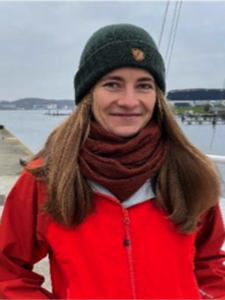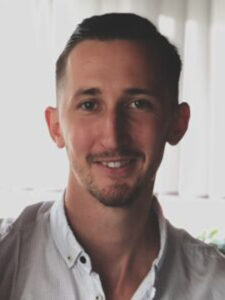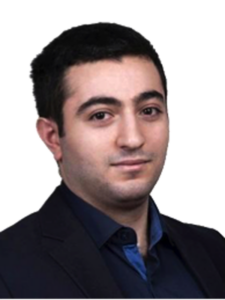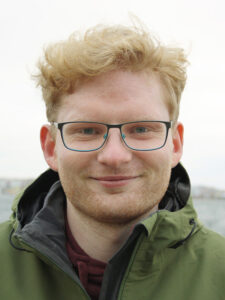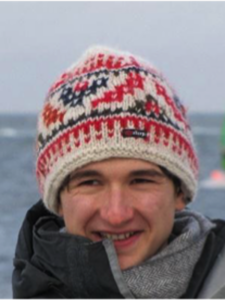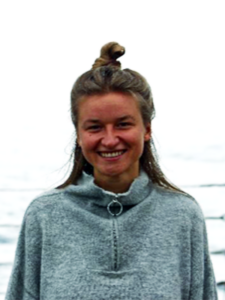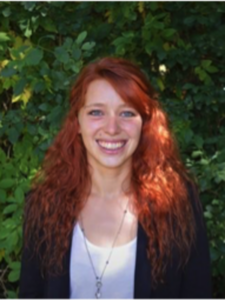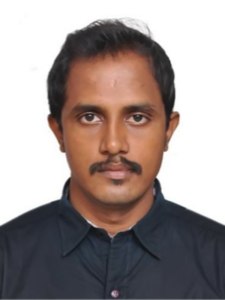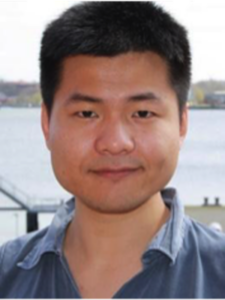Early Career Scientist Representatives
RETAKE
Isabel Diercks
Doctoral Researcher
GEOMAR Helmholtz Centre for Ocean Research Kiel
I’m a marine biologist working in the Geomicrobiology group at GEOMAR. In my PhD project I study the interactions of marine microbial communities with enhanced benthic weathering of olivine and carbonate in the Baltic Sea, by using different tools of molecular biology, bioinformatics and porewater analyses.
In my spare time I like to do sports and care for my indoor jungle.
In this team, I hope to be able to contribute to the representation of the interests of ECS in our consortium, assist with networking and most importantly: communication.
sea4soCiety
Florian Stahl
Doctoral Researcher
University of Bremen
GEOSTOR
Firdovsi Gasanzade
Doctoral Researcher
Kiel University
I am a reservoir engineer in the GEOSTOR consortium from the Geohydromodelling group of Kiel University with a background in petroleum engineering. In the last five years I’ve changed to the bright side of the force and work on renewable energy storage topics. In this project, I aim to demonstrate the feasibility of large-scale CO2 sequestration in the German North Sea sector.
Test-ArtUp
Malte Jürchott
Doctoral Researcher
GEOMAR Helmholtz Centre for Ocean Research Kiel
I am a PhD student at GEOMAR working in the Test-ArtUp consortium and I simulate globally applied artificial upwelling (AU) with the earth system model UVic and examine its impact on the ocean’s carbon cycle and disentangle / quantify the involved processes.
Test-ArtUp
Jost Kemper
Doctoral Researcher
FH Kiel University of Applied Sciences/GEOMAR Helmholtz Centre for Ocean Research Kiel
I am a PhD student in the Test-ArtUp consortium. My background is in naval architecture and marine engineering. My project at the University of Applied Sciences Kiel focusses on flow modelling for artificial upwelling devices.
I am excited to contribute to the research and development of the various marine CDR options.
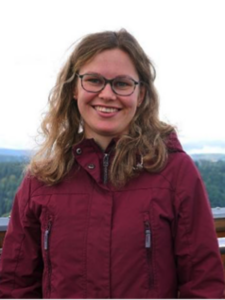
AIMS3
Isabel Kremin
Doctoral Researcher
GEOMAR Helmholtz Centre for Ocean Research Kiel
I am a geophysicist and PhD student in AIMS3 . My research focus is on the numerical modelling of fluid flow through crustal rocks at different scales, which can range from very small pore spaces to regions of several kilometers.
As part of AIMS3, my major task is to design a 3D model for heat and fluid transport for the site of a proposed ridge-flank observatory on the Reykjanes Ridge, incorporating available geological and geophysical data (e.g., crustal architecture, bathymetry, sediment cover). This model is of fundamental importance for making statements regarding the carbon uptake rates in rocks as well as the interaction between rocks and fluids circulating in the ocean crust. It thus provides us with a way to predict reservoir behaviour on long time scales. Through my work in AIMS3, I hope to be able to make an active contribution to protecting the climate and advancing the use of CCS in basaltic ocean crustal rocks.
AIMS3
Isabel Lange
Doctoral Researcher
Bremen University
I am a PhD student in the Petrology of the Ocean Crust group at the University of Bremen. During my previous studies I discovered my interest in solid-fluid interactions. In AIMS3, I am responsible for laboratory experiments investigating basalt-seawater-CO2 interactions. A main focus of my experiments is on the different flow-regimes and their impact on carbonate mineralisation and pore space evolution. I am performing flow-through experiments combined with (3D) spatially resolved analytical methods, and chemical analyses of both fluids and solids. The results are aimed to deliver crucial parametrisations for computer models developed for CO2 storage in submarine basaltic aquifers.
sea4soCiety
Sarah Rabe
Doctoral Researcher
Hamburg University
I’m a geographer from the University of Hamburg, specialised in the human-nature interplay. In sea4soCiety my job is to look at the societal and economic point of view towards coastal vegetated ecosystems on the German coasts. The goal here is to find out, how the coastal regions, and therefore the people living there, can profit from the conservation and restoration of such ecosystems.
RETAKE
Murugan Ramasamy
Postdoctoral Researcher
Leibniz Centre for Tropical Marine Research
I received my Bachelors and Master’s degrees in Geology, as well as my Ph.D. in Hydrogeology, in India. I have worked on various geoenvironmental projects for academia, industry, and government in both Canada and India for over 8 years. My main areas of expertise are groundwater contamination and remediation, as well as groundwater-ocean water interactions.
My role in RETAKE will be to model the effects of sediment hydrodynamics and climatic variables on enhanced weathering rates, as well as to search for favourable locations for enhanced weathering.
My personal motivation for researching this topic is that, as a hydrogeologist, I will be able to contribute to providing recommendations for the most efficient ways to implement alkalinity enhancement by conducting this research.
ASMASYS
Ben Wanxuan Yao
Postdoctoral Researcher
GEOMAR Helmholtz Centre for Ocean Research Kiel
I have biogeochemical modelling and geography informatics as my background.
I am now evaluating the marine-based CDR options for Germany.
My interests are network planning, iron cycle and ecosystem modelling.
My hobbies are painting and gardening.
Terms of Reference
Role & Responsibilities of the CDRmare Early Career Scientist Representatives
The group of CDRmare Early Career Scientists (ECS) comprises of the doctoral candidates as well as all other young researchers that define themselves as belonging to the postdoctoral community.
The ECS are an important group within CDRmare, as it is mainly them conducting the actual science within the research mission. Regular exchange and interdisciplinary connections within this group are therefore beneficial for achieving the overarching CDRmare goals and may play an important role for the ECS’s further career development.
As the group of ECS within CDRmare consists of more than 60 members, there shall be ECS Representatives within each consortium. The Representatives’ responsibilities are:
(1) to represent the CDRmare ECS of all consortia to support a thriving ECS community.
(2) to serve as a link between the CDRmare ECS community and the CDRmare Executive Board (EB) and/or the CDRmare Manager with whom they meet on a monthly basis.
(3) to channel and communicate information in both directions between the CDRmare ECS community and relevant CDRmare bodies such as the EB and/or CDRmare management.
(4) to provide a safe and confidential environment for all CDRmare ECS to raise and address problems or concerns they encounter during their work.
(5) to organise regular meetings with the CDRmare ECS community.
(6) to lead and develop activities for enhancing networking between the CDRmare ECS in the different consortia in order to raise awareness of the overarching CDRmare goals.
(7) support the process of keeping track of the ECS members in the consortium (incl. email lists and Confluence)
